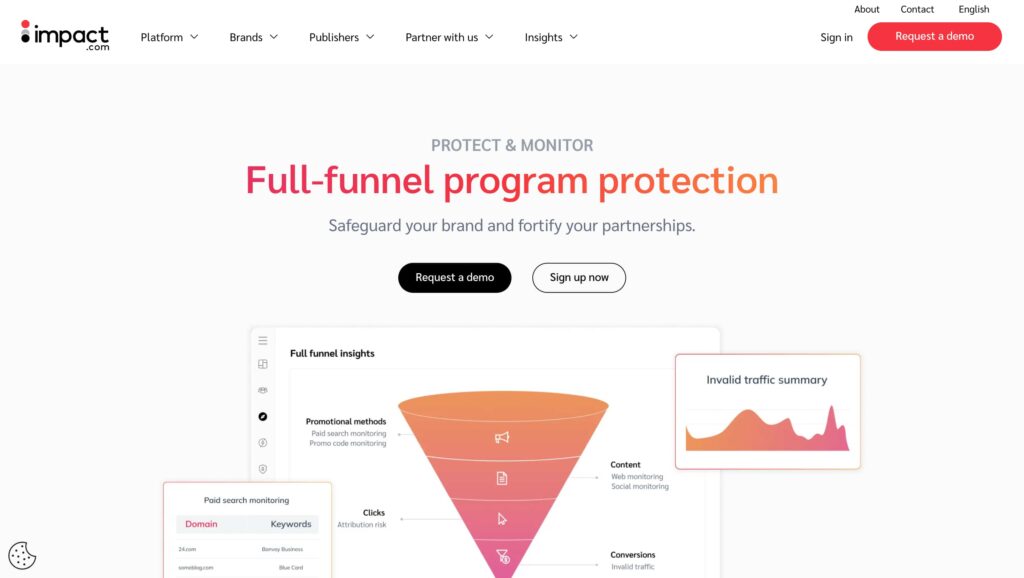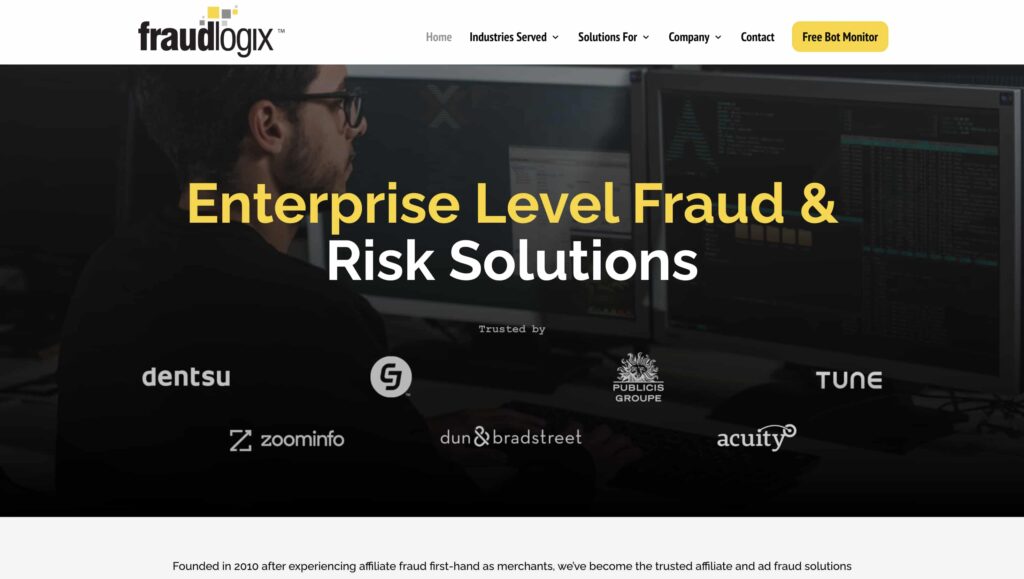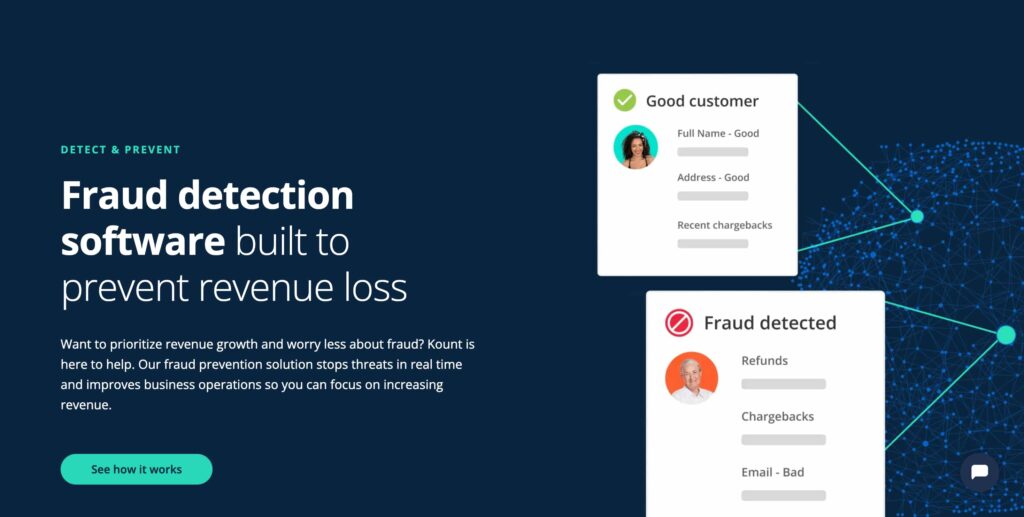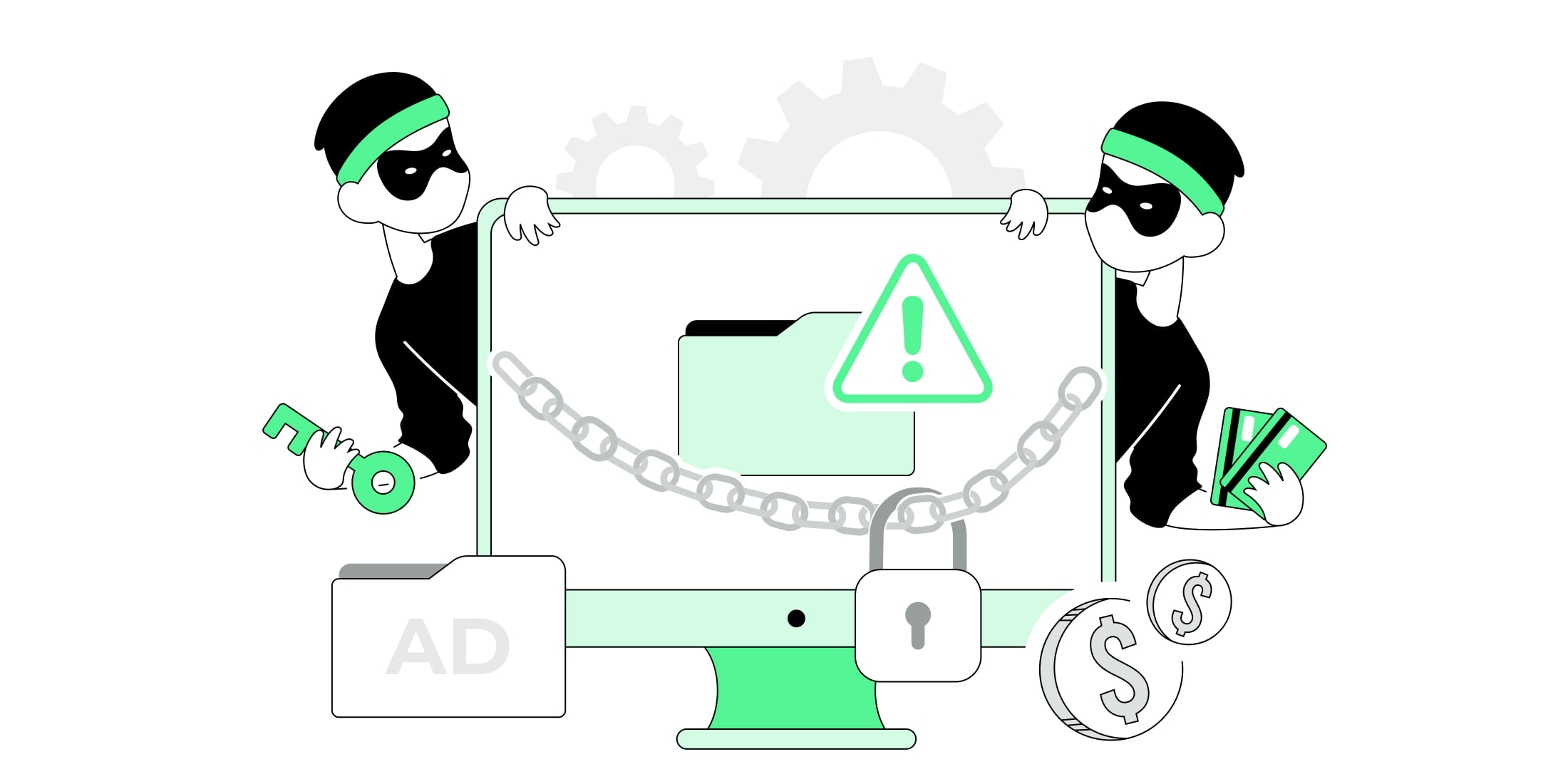Affiliate marketing is a lucrative sphere for raising income. However, amidst the potential for success, there also exists a dark side known as fraud. Affiliate fraud poses significant challenges, threatening the integrity of campaigns, the trust between advertisers and affiliates, and ultimately the effectiveness of the entire ecosystem.
In this article, we will explore the concept of fraud, its various forms, and the measures taken to detect and combat it. By understanding the nature of fraud in affiliate marketing, webmasters can better protect themselves and ensure the legitimacy of their partnerships.
What is Fraud in Affiliate Marketing?
Fraud is a scam when cheaters deliberately attract low-quality affiliate traffic under the guise of valid leads. Scams are perpetrated by unscrupulous affiliates, internet marketers and cyber criminals who seek to make easy money at someone else’s expense.
Fraud is also called traffic, which does not bring profit to the promoted offer. For example, traffic that consists entirely of bots. So, if a fraudulent affiliate tries to bring prohibited, low-quality traffic to an advertiser under the guise of quality one, the advertiser doesn’t get profit as well as the marketer doesn’t receive commission.
It’s well known that fraud can lead to the webmaster’s ban in the affiliate network forever, without payment of previously accrued money; penalties; court, if the fraud has led to significant financial damage to the advertisers.
To track the quality of your traffic, we recommend using a tracking platform. Best affiliate tracking software you will find in our article.
Common Types of Affiliate Fraud
There are different types of fraudulent activities:
- Duplicate Content: Unscrupulous affiliates clone successful affiliate sites by manipulating SEO techniques to divert traffic to their copied sites;
- Ad Stacking: This is the simultaneous display of multiple ads when one ad is hidden under another. The user doesn’t see it, but the advertiser pays for its display;
- URL Hijacking: Scammers buy domain names that resemble the original popular websites. They register with an affiliate service and when a user mistakenly goes to their URL instead of the genuine site, they trick out clicks. The user may realize the mistake and manually enter the correct URL, or the scammer may set up an immediate redirect to the genuine site. Anyway, the scammer gets paid per click;
- Click Stuffing: In affiliate programs and networks that use CPC models, fraudsters use special bots to artificially increase the number of clicks on a particular affiliate link, allowing them to receive undeserved rewards;
- Fake conversions: Many affiliate marketing programs and networks use CPA or CPC based payment models, but these can be modified to reward affiliates for different actions such as leads, impressions or app installs. This opens up opportunities for bots that generate clicks or even make purchases using stolen credentials. As a result, the fraudster earns commissions;
- Malware: Scammers use malware to attack users. They register with an affiliate network and inject their affiliate codes into transaction processes using malware. This results in payments to the scammer. Affiliate swindlers can also spread their malware by placing ads with infected code (called malvertising). These ads, purchased and displayed on other sites, can infect the user’s device with a click-generating virus, falsely increasing the number of clicks attributed to the fraudster;
- Cloaking: Domain spoofing is a way to place ads where they are not allowed. This is a proven way to bypass moderation in TikTok and other social networks. The algorithms of the platform see one resource, but users see another. Cloaking as a “gray” method of promotion has existed for many years, sometimes it is appropriate, but before running such traffic, you need to discuss it with the advertiser or affiliate network.
Also, the rules of an offer may consider such actions as mass emails, messages in social networks, pop-up ads, which the user may click on accidentally or involuntarily, to be considered as a fraud.
Affiliates often mix quality traffic with a small number of fake conversions. On the background of quality requests, they can be mistaken for random irrelevant leads. But if an advertiser suspects a fake conversion, all the brought traffic can be canceled, and you won’t get the commission.
Fraud Examples in Different Verticals
Scammers employ various schemes tailored to different verticals, depending on the nature of the offer and key performance indicators (KPIs).
In eCommerce, a prevalent scheme involves non-purchase of goods. This means that customers place orders, fill out forms, but the payment never arrives or will not be made.
In Mobile Apps, where the desired action is installation on devices, motivated traffic is often directed. Users may uninstall the application, while the fraudster receives payment for their actions.
Fraud in Dating is not always simple deception. There are more nuanced. For instance, an affiliate creates a profile of a fictitious girl on a social network, and then redirects communication with followers to a Dating website. By communicating on behalf of a non-existent girl, the marketer both misleads the user and brings the advertiser a user who is interested in meeting someone. The outcome can go either way: the user might feel deceived and disappointed or decide to continue interacting with other individuals. In the latter case, it would not be fair to label such an approach as fraud. Instead, it represents high-quality traffic.
Fraud in Gambling often involves misleading practices that harm both the advertiser’s budget and reputation. Motivated traffic is also commonly used in this vertical. Users receive a percentage of the wager paid to the affiliate or advertiser for completing a targeted action. This percentage can range from 5% to 50%.
Affiliate Fraud Detection Activities
To detect fraud, special systems have been created that analyze suspicious activities, the speed of targeted actions, user locations, and account lifetimes. Both self-developed tools and pre-built solutions from developers can be used by affiliate networks.
The primary defense against fraud in affiliate networks is the implementation of a hold period. This period allows advertisers to evaluate the quality of leads before webmasters are permitted to withdraw their earned rewards. Many networks establish a separate hold period specifically for new marketers.
Advertisers can also employ their own measures to identify low-quality traffic based on conversion points. For example, they may require the redemption of product offers before validating the leads.
You can attract quality traffic by using effective ways to promote affiliate links, which we described in our article.
How to Prevent Affiliate Marketing Fraud
The best way of affiliate fraud prevention is anti-fraud systems. Many legitimate affiliate networks either integrate third-party resources or build their own systems to detect scam.
At the same time, scammers know what anti-fraud is and how it works, and they try to bypass the system, but still lose. New anti-fraud schemes appear regularly, and machine learning systems that recognize fraudulent actions on the part of webmasters are updated along with them.
Antifraud systems warn about various activities:
- Too many clicks in a short period of time;
- Only a few seconds elapsed between clicking on the landing page and conversion;
- Many clicks from the same IP address;
- Too low or high CTR;
- Night time activity;
- Different location of the same user;
- Short user life cycle around 3-4 days.
The anti-fraud system notifies not only the affiliate network about suspicious actions. An affiliate also receives a warning. Often a webmaster runs fraud traffic unintentionally and unknowingly. The system notices this and warns the marketer before blocking without the right to withdraw funds.
Best Affiliate Fraud Prevention Platforms
There are top 3 anti-fraud services for affiliate marketing that you can use in order to be protected from scam.
Impact

Impact is a platform to monitor and protect your affiliate marketing campaigns. It protects you from fraud and ensures that you’ll get the commissions for quality leads.
Performance fraud is a concern in both web and mobile environments. Impact offers advanced invalid traffic detection, providing real-time visibility into questionable traffic sources. This powerful system promptly identifies high-risk activities, such as bot clicks and cookie stuffing. By revealing the actual quality of your partnerships, you can confidently ensure that you only pay for genuine and effective results.
Fraudlogix

Fraudlogix is a reputable provider of affiliate and ad fraud solutions for enterprise traffic quality teams. Their technology is integrated into over 300 million URLs and apps, allowing them to monitor traffic patterns and behaviors across 25% of the global online population. This extensive coverage ensures the delivery of high-quality traffic for platforms worldwide.
Their solutions specifically address issues such as bots, invalid traffic (IVT), click fraud, ad fraud, fake form submissions, fraudulent payments, and cyber-attacks. By offering tailored security measures, Fraudlogix caters to the unique requirements of various sectors.
Kount

Kount is an affiliate fraud detection software built to prevent revenue loss. Kount places significant emphasis on anti-fraud solutions through various means. It offers fraud monitoring and detection services specifically tailored for affiliate marketing, eCommerce stores, and similar environments where credit card transactions do not occur in-person. Its capabilities are designed to cater to a wide range of online businesses, including retailers, affiliate marketers, utility providers, travel providers, B2B companies, ticketing platforms, events, and more.
Conclusion
Fraud in affiliate marketing is a pervasive issue that requires constant proactive measures. As the industry continues to evolve, scammers adapt their tactics, making it crucial for marketers and advertisers in cooperation with affiliate networks to stay informed and implement robust anti-fraud strategies. And don’t forget to read terms and conditions when joining any CPA network to avoid scam in it.
